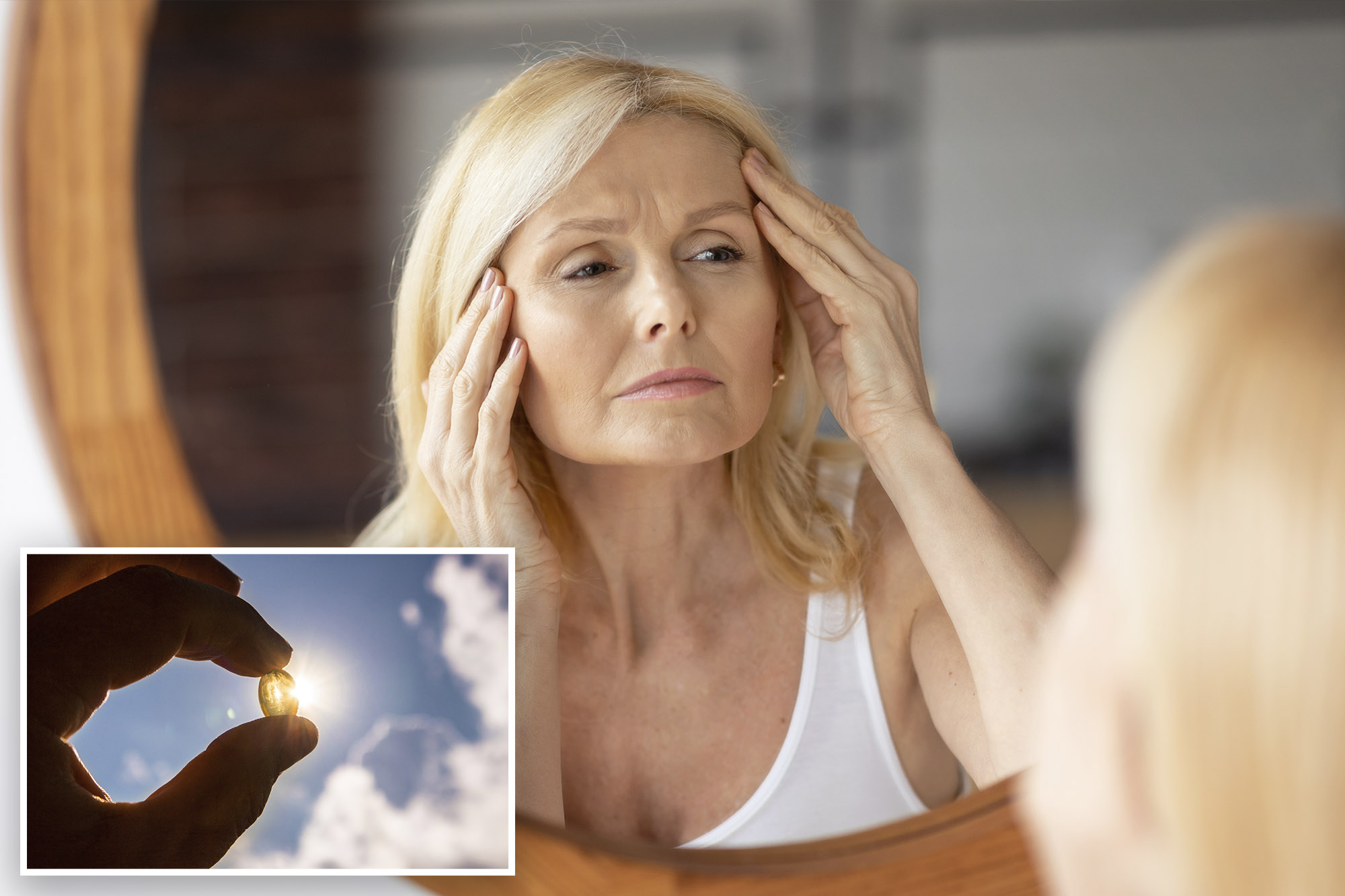Do you want to grow a little more like Helen Mirren and a little less like the iPhone battery?
A new study says that the youth source can already be in your medicine cabinet.
Researchers at an essay called Vital, who monitored women and men over the age of 50 for five years, found that vitamin D supplements can help stop biological aging up to three years.
Another popular supplement, those omega-3 fatty acids, was not shown to have the same effect.
This study, published on Wednesday in the American Journal of Clinical Nutrition, revealed that vitamin D seems to shield telomeres: small caps at the ends of your chromosomes that are reduced as they grow old and are linked to diseases such as cancer, heart problems and other chronic conditions.
Telomers are like the caps of the laces: when they are worried, things begin to reveal -quickly.
“ Our findings that the supplementation of Vitamin D retained the length of the telomer in the vital essay, suggest a promising role for vitamin D in reducing a way for biological aging and age -related chronic disease, ” said Dr. Joann Manson, a lead researcher in Vital and Chief of the Division of Preventive Medicine in Brigham and the Hospital de las women.
“But we believe that replication of these results in a separate random trial will be important before changing the general guidelines for vitamin D intake.”
This is partly because what is considered an adequate level of vitamin D is, as he said, “a controversial subject”.
“Blood levels for recommended deficiency and blood levels vary between organizations, laboratories and countries, which is one of the reasons for doubt about the usefulness of the test,” said Manson.
“For example, the National Academy of Medicine suggests a level of more than 20 milliliters (ML), but some other organizations recommend 30 ml or even higher levels. There is no consensus or agreement on the optimum level to point out.”
In addition, although many trusted healthcare organizations do not recommend screening or supplementation of routine vitamin for all, the new guidelines of endocrine society suggest supplements for certain groups: adults of 75 years and over, babies and children, pregnant and predictable women.
Manson said that “they do not specify a specific dose.”
He said that other groups that could be at risk of vitamin D deficiency include those who live in grandparents where there may be little exposure to the sun, those with malabsorption conditions such as Crohn or Celiac disease, osteoporosis treaties or other bone health problems, and those with significant dietary restrictions such as severe lacquer intolerance.
He added that participants in their trial consumed 2000 IU/D – the equivalent of 5 ml – without negative side effects, so it considers it a safe amount.
If supplements are not for you, other vitamin D sources include fatty fish, such as salmon, sardines and tuna – wild mushrooms, some cereals, dairy products, orange juice and the sun.
“Going to a 15 -minute walk a few times a week at noon is usually sufficient sunlight for the skin to synthesize vitamin D, and this can be an exposure to the incidental sun, such as while running as orders,” said Manson.
“Even more important for your health would be to exercise outdoors, such as walking fast, jogging or playing sports.”
He also warned of thinking that more is better when it comes to supplements.
“We only need amounts of vitamin D for good health, as vitamin metabolism is closely regulated in the body,” he said. “Very high doses, such as more than 10,000 UI/D, may be associated with calcium levels and blood or urine toxicity.”
Finally, do not forget that supplements are only intended to complement, not replace the life options that benefit your well -being.
“Note that taking a supplement will never be a substitute for a healthy diet and a healthy lifestyle,” Manson said.
“Although it is much easier to appear a pill than being physically active outdoors and healthy eating, these lifestyle factors will do more to maintain -healthy and reduce the risk of cardiovascular disease, cancer, type 2 diabetes and other chronic diseases of aging.”
#Popular #supplement #secret #slowing #aging #heres
Image Source : nypost.com
